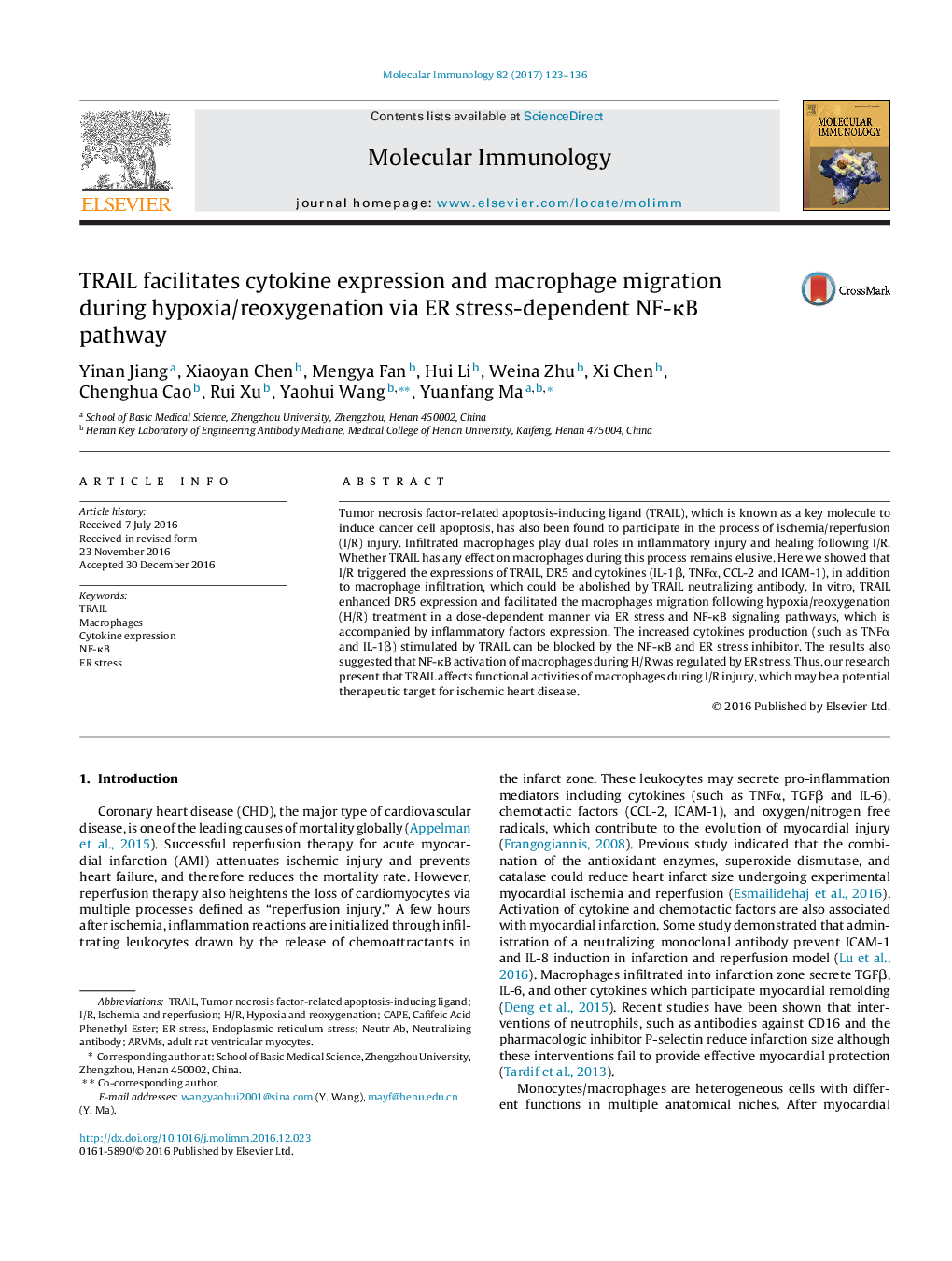| Article ID | Journal | Published Year | Pages | File Type |
|---|---|---|---|---|
| 5592186 | Molecular Immunology | 2017 | 14 Pages |
Abstract
Tumor necrosis factor-related apoptosis-inducing ligand (TRAIL), which is known as a key molecule to induce cancer cell apoptosis, has also been found to participate in the process of ischemia/reperfusion (I/R) injury. Infiltrated macrophages play dual roles in inflammatory injury and healing following I/R. Whether TRAIL has any effect on macrophages during this process remains elusive. Here we showed that I/R triggered the expressions of TRAIL, DR5 and cytokines (IL-1β, TNFα, CCL-2 and ICAM-1), in addition to macrophage infiltration, which could be abolished by TRAIL neutralizing antibody. In vitro, TRAIL enhanced DR5 expression and facilitated the macrophages migration following hypoxia/reoxygenation (H/R) treatment in a dose-dependent manner via ER stress and NF-κB signaling pathways, which is accompanied by inflammatory factors expression. The increased cytokines production (such as TNFα and IL-1β) stimulated by TRAIL can be blocked by the NF-κB and ER stress inhibitor. The results also suggested that NF-κB activation of macrophages during H/R was regulated by ER stress. Thus, our research present that TRAIL affects functional activities of macrophages during I/R injury, which may be a potential therapeutic target for ischemic heart disease.
Keywords
Related Topics
Life Sciences
Biochemistry, Genetics and Molecular Biology
Molecular Biology
Authors
Yinan Jiang, Xiaoyan Chen, Mengya Fan, Hui Li, Weina Zhu, Xi Chen, Chenghua Cao, Rui Xu, Yaohui Wang, Yuanfang Ma,
